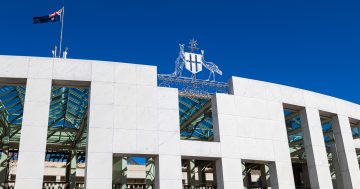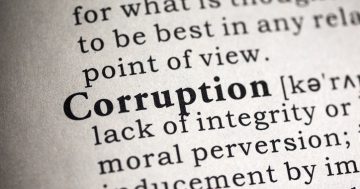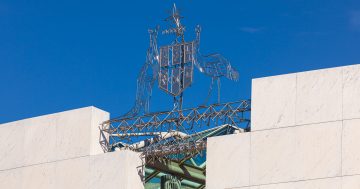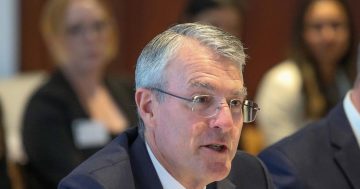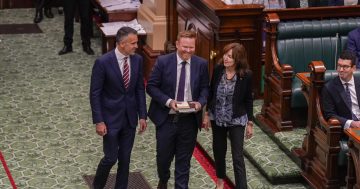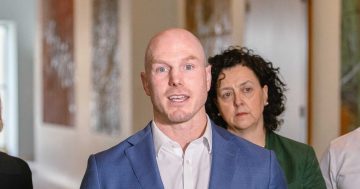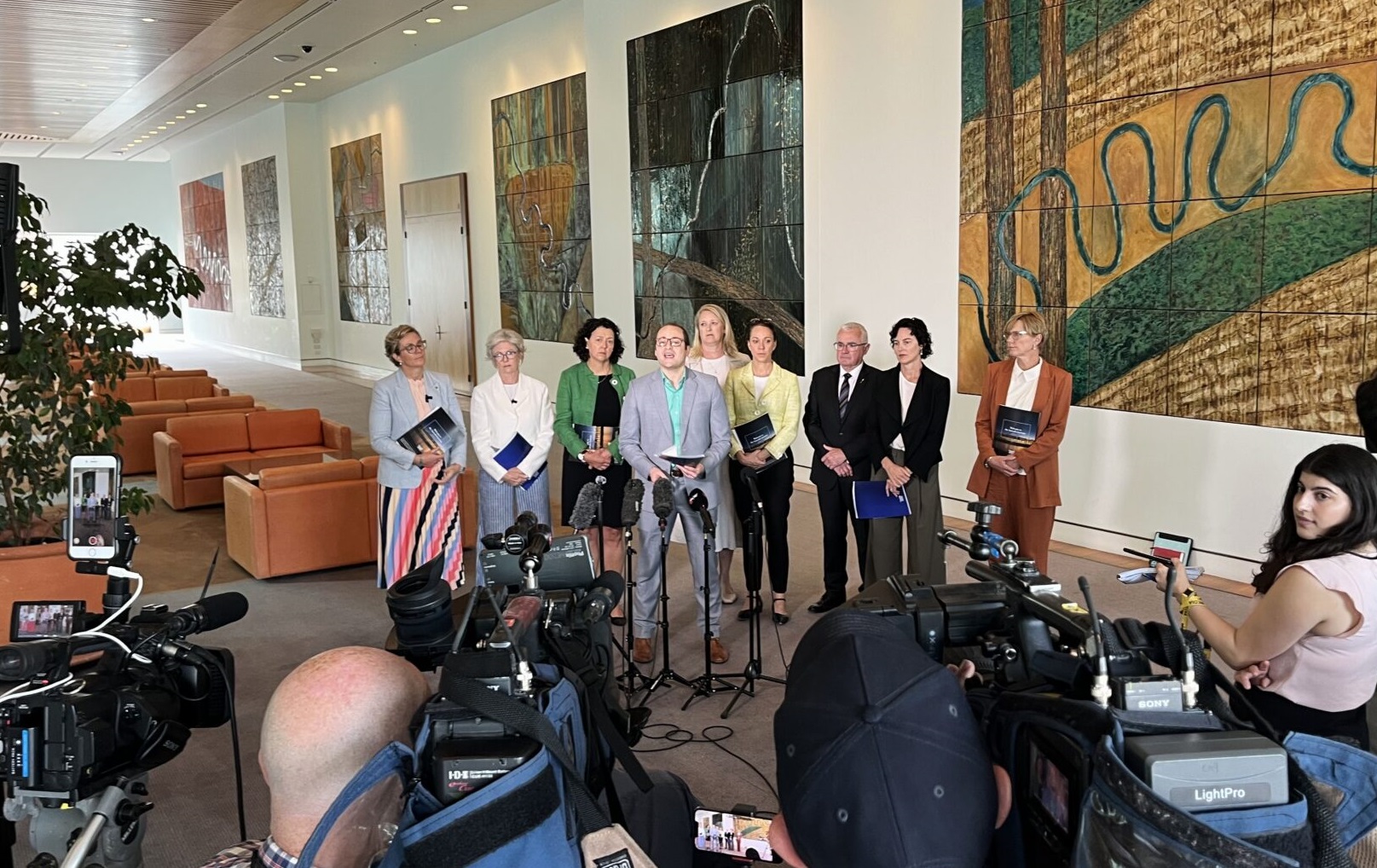
The Australia Institute’s director of democracy & accountability Bill Browne launches the proposed reforms with independent MPs. Photo: The Australia Institute.
Crossbench Members of Parliament including Teals, Greens and independents have joined with think tank The Australia Institute to propose several major reforms for the next Parliament.
The Australia Institute says its Democracy Agenda for the next Parliament calls for strengthened parliamentary debate, increased government accountability, and enhanced integrity of Australia’s political institutions.
Its proposed reforms have been endorsed by several crossbenchers, including Greens Senate Leader Larissa Waters, independent Teal MPs Kate Chaney, Zoe Daniel, Sophie Scamps and Monique Ryan, and independents Helen Haines and Andrew Wilkie.
A report outlining the reforms was launched on 13 February by The Australia Institute’s director of democracy & accountability Bill Browne.
“These reform proposals are designed to start a debate about how to improve the efficiency and transparency of Parliament, ensure better representation for all Australians, and create a more open and fair political system,” Mr Browne said.
“The Senate shows that parliamentary debate can accommodate a variety of voices and perspectives, with crossbench and Opposition members bringing on matters for debate and vote without fear of being gagged. The House of Representatives could be reformed along similar lines.
“It is perfectly legal to lie in a political ad in Australia – but that doesn’t have to be the case.
“South Australia has had working, impartial truth in political advertising laws for 40 years. Similarly, the state experience with public hearings shows that the federal anti-corruption watchdog should be empowered to hold public hearings whenever they are in the public interest.”
The proposed reforms include:
- Adopting Senate Innovations: Reforming the House of Representatives by introducing measures such as private members’ motions, simpler suspension of standing orders, and reforms to Question Time.
- Independent Staffing Allowances: Ensuring equitable staffing resources for crossbench and Opposition members to improve the legislative process.
- Fixed three-year terms: Committing to full three-year terms to allow better planning of legislation and inquiries.
- Integrity and Open Government: Protecting integrity agencies such as the National Anti-Corruption Commission, strengthening whistle-blower laws, and improving transparency in lobbying and political advertising.
- Political Finance Reform: Enhancing the transparency of political donations, including through real-time donations.
Dr Scamps said Australia deserved a political system it could trust.
“Strengthening the integrity and transparency of our political system would help improve the decisions that governments make, and would benefit all Australians now and into the future,” she said.
Independent MP Zali Steggall said Australia had one of the world’s strongest democracies, but it couldn’t be taken for granted.
“Self-interest can erode many measures,” she said.
“To keep it strong, Australians must trust our political system. Measures like truth in political advertising, whistle-blower protections, and a strong National Anti-corruption Commission are vital to upholding integrity.”
Dr Ryan said she strongly stood by The Australia Institute’s proposals for democratic reform.
“Faith in democracy depends on politicians and public servants being honest, transparent, responsive, and accountable,” she said.
“Improved procedures, better whistle-blower protections, more transparency about lobbying, and truth in political advertising laws will improve the transparency and accountability of our Parliament. Trust in government is difficult to earn and to keep; these reforms will help win it back.”
Senator Waters said Australian voters wanted a democracy that worked for them, not just the major parties and their corporate donors.
“Democracy needs to be in the hands of the people,” she said. “Transparency about donations and truth in political advertising are integral to making that happen.”
Dr Haines added: “This agenda lays out opportunities to improve integrity and strengthen our democracy. It is an important starting point for the next Parliament.”
Ms Daniel said that, without trust in the integrity of politicians and public servants, public faith in democracy eroded, leading to disenchantment, disaffection, and worse.
“We must foster better public decision-making by entrenching integrity into our systems of government,” she said.
“This includes real-time publication of ministerial diaries, overhauling laws that regulate political lobbying and moving toward a national system of integrity laws. Electoral and campaign finance reform are also critical. The ability for political candidates to lie in election advertising must end, and the Parliament should consider four-year, set terms.”
The call comes on the same day that Ms Steggall clashed with Special Minister of State Don Farrell over political donation reforms, which were rushed through Parliament with the support of the major parties on 13 February but are not due to come into effect until after the 2028 federal election.
The reforms will see a $50,000 cap placed on individual donations and the disclosure threshold reduced to $5000, while spending limits for political campaigns will be set at $800,000 an electorate, and $90 million nationally.
Mr Farrell was briefing reporters in Parliament House on the details of the reforms when Ms Steggall confronted him over his claim that the reforms would make it easier for ordinary Australians to engage in the electoral process.
“If that’s so sure, why won’t you send the bill to inquiry to be assessed that it is actually democratic?” she asked Mr Farrell.
“Why don’t you tell the Australian people that what is going to happen – the big money that will be in politics is the public money, because now the public is paying for the money that you want to still spend during elections.”


